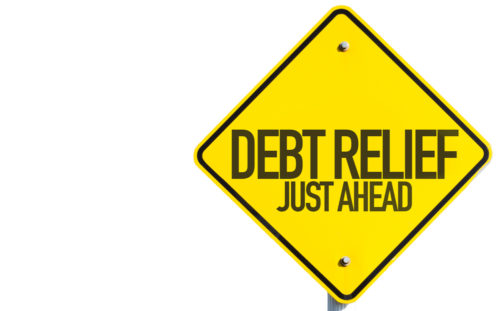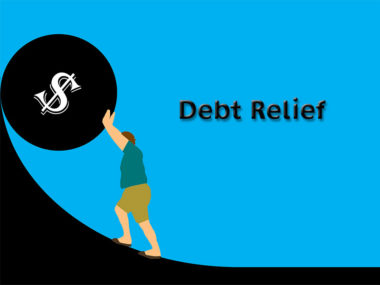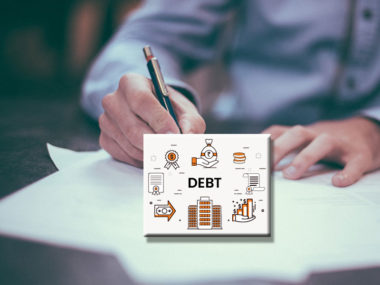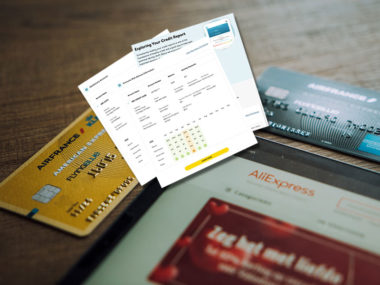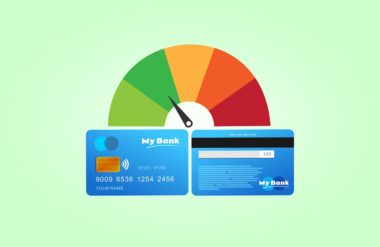If you have a substantial amount of debt, a debt relief program may be an option. Depending on the type of relief you choose, it’s possible to reduce how much you owe, change the terms of the debt, and pay your obligations more quickly. Debt relief won’t magically make your debt disappear, and different programs have different consequences for your credit, but opting to get help from the right source can improve your overall financial health in the long term.
Table of Contents
When You Should Seek Debt Relief
The best way to get out of debt is to pay your bills, in full and on time. If that proves impossible, then debt relief may be a solution. Because of the potential impact on your finances, seeking debt relief should only be an option in very specific circumstances.
- You are spending more than half of your gross income on unsecured debt (i.e., credit cards and personal loans.) This does not include secured debt like your mortgage and car.
- You cannot reasonably pay what you owe within five years, even if you were to make significant lifestyle changes and cut your spending.
If you can eliminate your debt by cutting your spending or making other changes to how you manage your money, it’s almost always the best way to go.
How Debt Relief Will Affect Your Credit
Seeking debt relief will impact your credit. Whether that impact is positive or negative, and how long it affects your credit score, depends on the type of program you choose. Generally speaking, the more debt you repay, the more positive the effect on your credit. In other words, if you choose a debt relief option where you pay everything you owe, then your credit score will likely improve. If you opt for an option that cancels your debt, or requires that you miss payments, your credit score will suffer for it.
Different debt relief options will also affect your access to additional credit. A debt management program, for example, usually requires participants to close their accounts, which will change your credit mix, amount of available credit, and age of accounts — all factors in your credit score. Once you complete the program, you can apply for new credit cards.
Bankruptcy, though, has a longer lasting effect on your credit and may prevent you from qualifying for credit — and the credit you can access will typically be at a higher interest rate. Therefore, when evaluating your options, consider the short- and long-term impact on your credit score, how it will affect your access to credit, and the cost of credit going forward.
Types of Debt Relief
As mentioned, there are multiple types of debt relief. The one that’s right for you depends on your situation, including how much you owe, how far behind you are on your bills, and your ability to repay.
Bankruptcy
Declaring bankruptcy is viewed as a last resort option for debt relief. It may be the best option if paying your debts is impossible, but the consequences can be fairly devastating as well.
Consumers usually file one of two types of bankruptcy: Chapter 7, which discharges all unsecured debt, including credit cards, medical debt, and unsecured personal loans, and Chapter 13, which requires you to make payments on your debt for three to five years, after which the remaining balances are discharged.
Bankruptcy doesn’t eliminate all debts, including taxes, student loans, and back child support, but it can reduce the amount you owe considerably. With a Chapter 7 bankruptcy, you may need to give up certain assets, including family heirlooms and second vehicles, as part of the settlement.
Advantages
- Eliminates some or all of your debt.
- Can save your home from foreclosure.
- May eliminate your debts in as little as three to four months.
Disadvantages
- Has an extremely detrimental effect on your credit score.
- Remains on your credit report for seven to 10 years.
- Does not eliminate all of your debt.
- Leaves co-signers responsible for your debt.
- May require you to give up property.
- Chapter 13 takes up to five years to eliminate debt.
- Not everyone qualifies for Chapter 7 bankruptcy.
Again, bankruptcy is typically only the best option for those who will not be able to reduce their debt through any other means. If other debt relief options fail, then declaring bankruptcy may be the best path to rebuilding your finances.
Debt Management
Debt management programs make it possible to repay your unsecured debts (usually credit cards) by negotiating with creditors to reduce interest rates and eliminate fees. Under these programs, you make a single monthly payment to the debt management provider, who then allocates that money to pay off your balances.
Although you typically have to close your accounts with these programs, once you’ve completed your plan you can apply for new credit. So while the initial impact on your score may be detrimental, overall the effect of debt management plans on your credit is positive because your balances are reduced.
Advantages
- Makes it easier to repay your debts without interest or fees.
- Reduces the time required to repay debts.
- All debts added into the program will be paid in full.
- Being in the program will not directly affect your credit score.
- Debt programs negotiate with your creditors on your behalf and may achieve more favorable terms.
- Credit cards are paid via one monthly payment, which may be lower than your current combined payments.
Disadvantages
- Debt management programs require closing accounts.
- Doesn’t include all debts, such as student loans.
- You will not be able to use credit cards while on the program.
- Programs may charge fees to manage your credit cards.
- Strict terms mean missing a single payment could kick you off the program.
Debt management programs are a good option if you have a great deal of credit card debt and your efforts to pay the balances aren’t making much of a difference. You may be able to negotiate lower interest rates on your own, but if you can’t get ahead or you’re only making minimum monthly payments, debt management is worth considering.
Debt Settlement
Debt settlement is usually only feasible for people who have a lot of debt, but cannot qualify for bankruptcy. Debt settlement essentially means negotiating with the creditor to repay less than you owe, and then close the account. Ultimately, the debt is paid, but the process of getting there may be detrimental to your credit.
Typically, debt settlement is only an option if you are severely delinquent in your payments, meaning at least 90 days behind. In fact, when you work with a debt settlement company for help with your bills, they may require you to stop making payments so you can meet that threshold. Not making payments on time has a negative effect on your credit score, so settlement may actually make things worse.
Advantages
- You repay at least some of the debt, and don’t have to worry about it anymore.
- You repay less than what you owe.
Disadvantages
- You must be behind on your payments to qualify.
- The effect on your credit score is significant, and it takes a long time to recover.
- Settlements can take years, and creditors may bring legal action while negotiations are underway.
- Not paying your debts while in negotiation can lead to wage garnishments and liens on your property.
- You may be liable for paying taxes on the forgiven debt.
Generally speaking, debt settlement is the worst type of debt relief, and most financial advisors recommend bankruptcy instead. The only time debt settlement is a viable option is when you don’t qualify for bankruptcy.
Debt Consolidation
Debt consolidation means combining several or all of your debts into one, either by transferring several credit card balances to a single, low interest card, or by taking out a loan to repay credit cards. Although consolidation can reduce the interest you pay on your debts and make things simple with one monthly payments, you’re still responsible for paying the entire balance of your debt.
Debt consolidation’s impact on your credit score is a mixed bag. Opening a new account requires a hard inquiry, which temporarily reduces your score. Adding a new account can lower your score as well, but it may also have a positive effect on your credit mix. Your overall utilization rate may also decrease as you eliminate the balances on cards, but you still owe the same amount. Ultimately, while consolidation doesn’t eliminate your debt, it makes it easier to do it faster.
Advantages
- Reduced interest rates save money.
- Making one payment reduces the likelihood of late or missed payments.
- Positive effect on credit utilization rate and credit mix.
Disadvantages
- New accounts can reduce your credit score.
- Some credit cards charge a fee for balance transfers.
- You may not be able to transfer all of your balances to one account.
- You’re still responsible for paying the entire debt.
Debt consolidation is a good debt relief option if you have multiple credit cards with high interest rates, or if you struggle to make payments on time every month.
Do-It-Yourself Debt Relief
Debt relief doesn’t always require working with a debt relief provider or making decisions that could be detrimental to your credit. With some commitment and planning, you can get out of debt on your own. For example, if you have a positive history with your credit card company, you may be able to negotiate lower interest rates on your own.
The most common DIY debt relief options, though, are the debt avalanche or debt snowball methods. Both options work on the principle of paying more toward a single debt until it’s paid in full, and then applying that amount to the next account in line, and so on. While you are paying more towards the debt with the lowest balance (snowball) or the ones with the highest balance (avalanche), you also make the minimum payments on your other debts.
Assuming you don’t continue to use your credit cards while you’re on this plan, you can pay down a great deal of debt within a few years. The immediate impact on your credit isn’t extreme, but over time, the effect is positive.
Advantages
- You pay all the money you owe.
- No negative effects on your credit.
- A sense of accomplishment as you pay down your balances.
Disadvantages
- Can take years to complete.
- Unless you negotiate lower interest rates, you may still pay thousands of dollars in interest.
- The positive impact on your credit takes a long time to appear.
A Final Word of Caution
Regardless of how you go about finding debt relief, it’s important to know exactly what your responsibilities will be and the overall effect on your finances and your credit. Do your homework before signing on with a debt relief provider so you can be sure that you’re working with a trustworthy company.
For example, if you opt for debt management, work with a company accredited by the National Foundation for Credit Counseling or the Financial Counseling Association of America. Avoid companies that promise to eliminate your debt, or promises to end all collections, that you’ll pay “pennies on the dollar,” or that you’re guaranteed to be debt free or will only need to pay a percentage of what you owe. No company can promise a specific result, so be wary of anyone who makes guarantees.
And finally, the success of debt relief comes down to you and your commitment to the program. Following through on your promises and making payments as agreed will get you out of debt, and ultimately, help you rebuild your credit and create a more solid foundation for your financial future.
Image Source: https://depositphotos.com/
